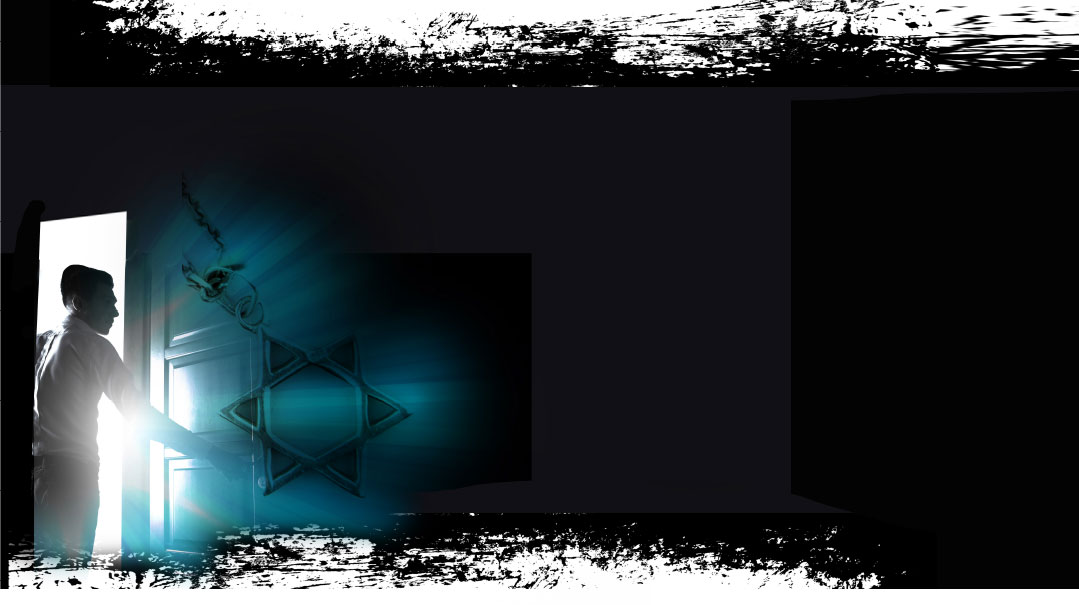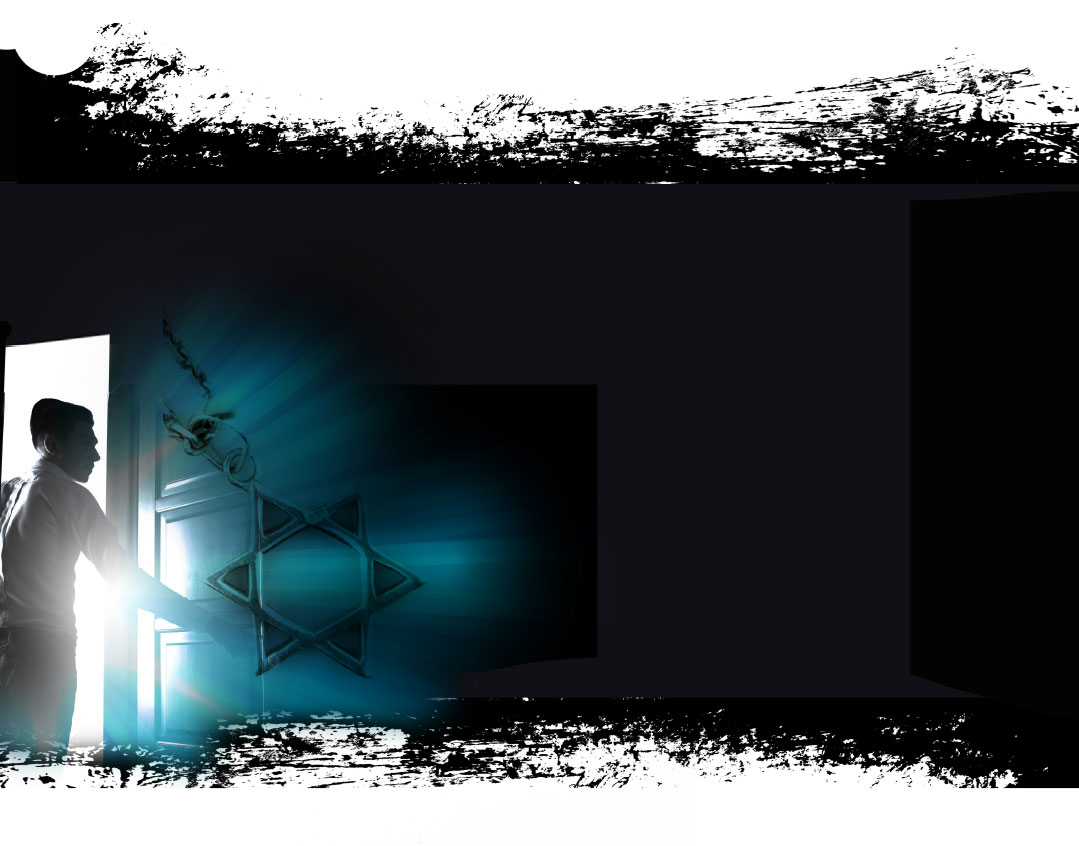Send Them Off as Jews: Chapter 5
| December 16, 2020Even when someone has only a short time to live, life — both in quantity and quality — is a halachic imperative

"Hello, rabbi,” says a harried and impatient voice on the phone.
“Hello, doctor,” says the rabbi. His intuition tells him that getting an unexpected phone call from a doctor he does not know is not a good sign.
His intuition is correct.
“Rabbi, your congregant Mr. Schwartzbaum is here in the ICU. I’m afraid there is nothing more we will be able to do to cure him. His family would like me to consult with you to decide how to care for him for the time he has left.”
“Of course,” says the rabbi. “What options do we have?”
“Well, rabbi, we can do this the cruel way or the compassionate way,” says the doctor. “We can be cruel and continue to provide every treatment we have, to extend his life for as long as possible. Or we can be compassionate: We can stop everything, disconnect the feeding tube and hydration, and let nature take its course.”
I hear this sentiment expressed all the time. The suggestion that supporting someone at the end of life should be considered “cruel” is certainly disheartening, if not dangerous, and profoundly out of step with the Torah’s guidance. There is another problem, though, with this doctor’s formulation, one that sometimes affects our thinking as well. It is the assumption that there are only two options: all or nothing.
The halachos that guide us at the end of life can be extraordinarily complex. The correct halachic approach to a given situation can change based on a small detail in the person’s medical condition. But overall, the path that the Torah demands of us is not one extreme or the other, it is the approach of moderation.
There are times when it is appropriate to stop trying to cure someone. But even in that case, we don’t stop supporting and caring for them. Even if it seems obvious that a person’s end is near, we generally keep providing them with hydration and nutrition, and make sure they can breathe comfortably. Even when someone has only a short time to live, life — both in quantity and quality — is a halachic imperative.
We are not choosing between care that is “compassionate” or “cruel.” We don’t prolong suffering when no cure is possible, but we continue to care until the very end. Despite what society sometimes tells us, it is truly an approach of moderation.
That word — moderation — is an important one to remember. That’s because it’s not only unsympathetic hospitalists who are confused about the Torah’s guidance for people facing terminal illness. Often, we — who follow halachah in every aspect of our lives — are also confused.
Someone recently shared with me a sentiment that left me profoundly discomfited. “If you won’t be able to accept no for an answer,” he said, “don’t ask the rabbi your sh’eilah.” I imagine that this suggestion is not one that most people act upon. But when it comes to questions about the last stages of life, it is sometimes an unfortunate reality.
I know a frum doctor who treats many older frum patients. He often talks to them about planning for the end of life. To his surprise, some people say that they want absolutely nothing done — no hydration, no nutrition, nothing. He gently suggests that there are halachic guidelines that they might want to discuss with their rav. No, they say, I just want nothing done. The same Yidden whose yiras Shamayim would send them straight to the phone for the smallest question about their frying pan insist that they will decide how to handle some of the most consequential sh’eilos on their own.
“Please,” I beg people, “don’t be afraid of your rabbi.” The Torah’s guidance about how we approach the end of life does not dictate extended unnecessary suffering; it does not value quantity of life above all else. The rav will not just say to do everything possible and hang up the phone. He considers the medical realities, the potential ramifications of each decision, the patient’s expressed wishes and the input of the entire medical team. The same Torah we trust to guide us through every other area of life can guide us through this area as well.
There are, of course, anecdotes to suit every point of view, and there is no question that the end of life can pose a huge array of challenges. But ignorance is not our ally. Many people are afraid they will suffer pain that cannot be managed. But thanks to modern advances in palliative medicine and pain relief, cases of pain that cannot be controlled are exceedingly rare; what is more, halachah takes pain extremely seriously.
In the course of caring for someone at the end of life, we are likely to encounter people who do not share and cannot understand our views. They will believe that we are following the cruel path. It’s at this point that being an advocate for the sick person becomes crucial.
But it’s also crucial to know that not all advocacy is equally effective. The first thing to remember is that to doctors, the idea of consulting the rabbi about a patient’s care is inherently incomprehensible. Many people imagine that the rabbi sits in his study, meditates, and divines an answer to their medical question out of thin air. The first step, then, is for us to help the doctor understand that asking a sh’eilah is a logical and analytic process, one that he might not have chosen but that he can respect.
The second thing to remember is that the time to start planning for a crisis is before the crisis comes.
I was once asked to participate in a difficult meeting at a nursing facility. The purpose of the meeting was to discuss the care being given to a frum patient, and it quickly became clear that everyone was upset with everyone else. The family was upset with the doctor; the doctor was upset with the rabbi; the rabbi had had it with the facility leadership.
“How many times have you all sat down together to discuss the case?” I asked.
“This is the first time.” It was just before Shavuos.
“And when did this patient first come here?”
“September.”
This, suffice it to say, is not a best practice. The patient had spent the previous eight months bouncing back and forth between the nursing home and the emergency department. The family was convinced that the nursing home was trying to kill him; the nursing home was convinced that the family was trying to torture him. It’s likely that they would never have seen eye to eye. But if the family does not give the doctors a chance to understand their position, it’s inevitable that poor choices will be made.
And the third thing to remember — and perhaps the hardest — is that Hashem is the Doctor Who directs our care.
I have never met someone — myself included — who did not feel guilty after a loved one they cared for passed away. If only I had fought harder, we think; if only we had tried this treatment or switched to that doctor. But Hashem writes the last chapter of our lives, just like He has written all the other chapters. We must make our best efforts, provide our best care, and sometimes fight our best fight. But all that is only hishtadlus — the ultimate journey is Hashem’s to create. And nobody — not even a doctor offering us an impossible choice in the middle of the night — can change that.
Rabbi Daniel Rose is the rabbi at Bnai Jacob Shaarei Zion Congregation in Baltimore, Maryland. He used to serve as the chaplain and director of Jewish Hospice Services for Seasons Hospice and Palliative Care of Maryland. He is also the author of Building Eternity: A New Perspective on the Meaning of Marriage (Menucha Publishers).
(Originally featured in Mishpacha, Issue 840
Oops! We could not locate your form.



